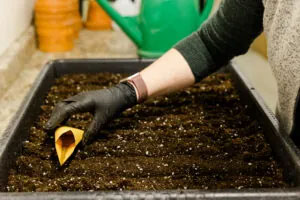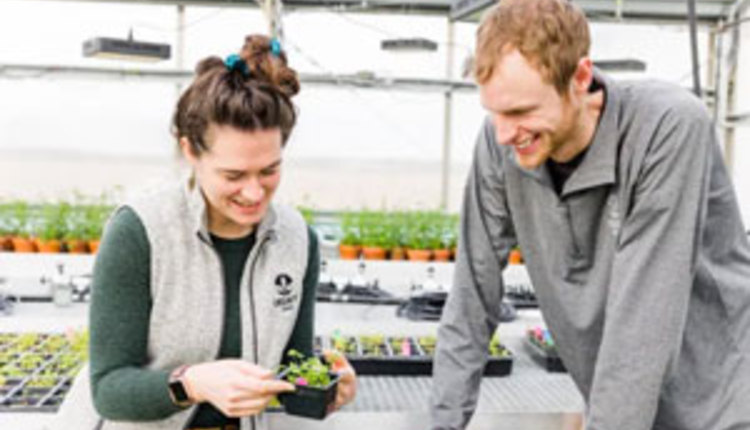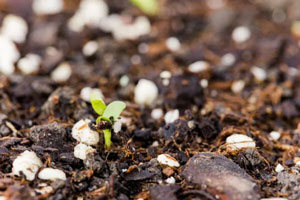New Director of Forage Research Focues on Future-Proofing Alfalfa for Reliable Persistence |
|
|
|
This item has been supplied by a forage marketer and has not been edited, verified or endorsed by Hay & Forage Grower.  Future-Proofing Alfalfa  “There are emerging diseases all the time that can become problems for farmers,” she says. “My job is to predict what those problems could be and work on a solution before it gets out of hand.” Olivia is also intentionally and sustainably growing the alfalfa breeding team so she can free up more of her time and energy to focus on the future. “I really like to be proactive vs. reactive,” she says. “When you’re working in agriculture, so much of your day to day or at least season to season is still pretty reactive. You can’t plan for Mother Nature. So for the tasks that I do have some small amount of power to control, it’s really nice to have more time.” Last year Legacy Seeds hired James Ferrell, who is currently completing his Master’s in Plant Breeding, as the new research manager. Collaborating with Customers The alfalfa program is able to breed for disease resistance and test that its varieties are meeting those three key pillars thanks to the 24-acre Research & Learning Center (RLC), an asset that Olivia calls “absolutely priceless.” But it’s also where Legacy Seeds tests potential varieties for its other crop portfolios. Farmers can trust that if Legacy Seeds is selling something, it’s because it’s been 100% vetted by the research team.  The RLC is more than just a place for research. It’s also where farmers can come to see test plots and learn more about Legacy Seeds, which is a huge benefit for Olivia. Even if a farmer doesn’t grow alfalfa, she says they may be using corn for forage, so it gives her an opportunity to talk to those farmers, learn what they’re looking for in their forage, and discuss the possibility of including alfalfa. She adds that every spring and summer is different, so a grower can visit multiple times and still see something new. She wants even more collaboration to happen at RLC and hopes to invite other experts, including growers, to come share their insights. “I’m really happy I work for a company that allows me the opportunity to be my own spokeswoman,” Olivia says. “That is so important because I can’t just be growing all of these things in the background that I think are interesting. I need to know what is actually important to our farmers.” Leaving a Legacy Everything Olivia does and the direction she’s taking the alfalfa program all comes back to those three pillars. But it’s the persistence — continued high quality and yields for years to come — is what she feels really sets Legacy Seeds’ alfalfa apart from others. The most expensive crop is the crop you plant twice, so the breeding team takes persistence seriously by letting their material prove itself over time, starting from disease screening in the RLC greenhouses to trial plots on the farm. Legacy Seeds alfalfa has proven to be 90% persistent after 3 winters, with growers seeing 4-5 year stands that continue to bring tonnage and quality. “It’s not as if there’s one gene for persistence and there’s no replication for time,” Olivia says. “With a name like Legacy, it almost feels like this constant and subconscious thought of, ‘This is my legacy. I can’t rush this.’ With it being a perennial crop, a farmer wants it to last and have a good stand for years.”  “We’re setting up these dominoes, and it can take 4-6 years for certain dominoes to fall, but our pipeline is always full of really, really excellent material,” she says. “I’m really excited and proud of what we’ve been doing. And I’m really looking forward to having some of these decisions that we’ve been making for the last few years see the light of day.” |
